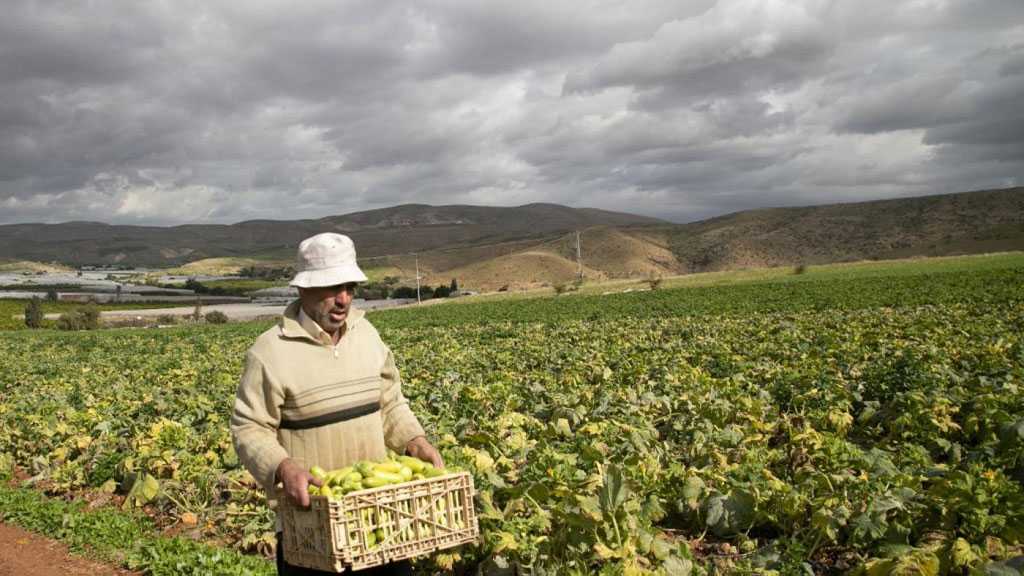
Tightened Anti-Coronavirus Measures in Palestine Double Local Farmers’ Losses

By Saud Abu Ramadan, Emad Drimly - Xinhua
Palestinian farmer Maher Abu Jeish has halted his work at his farm near the northern West Bank city of Nablus until further notice due to the consequences of the tightened measures imposed by the government in the West Bank.
Abu Jeish, a resident of Beit Dajan village east of Nablus, complained that he and all the farmers in the village have incurred heavy losses after the prices of the agricultural produce dropped due to the lockdown of public markets and banning movement between cities and villages in the territory.
"I was obliged to pick up the fruitful crop of tomatoes earlier than usual, and I sold it at a low price, which has barely covered the running cost of the 8-donum greenhouses," Abu Jeish told Xinhua.
Abu Jeish, a father of four, said that each box of tomatoes "is costing me 4.24 US dollars, while I sold it in the market for $2.1," therefore he decided to halt his work in the farm to avoid more financial losses.
"Since the beginning of 2021, my losses have been estimated at 36,355 US dollars the thing that has aggravated my debts to tomatoes' seeds suppliers, fertilizers, medicines, and other needed requirements for tomatoes production," he said.
In Beit Dajan, approximately 200 Palestinian farmers are working in agriculture and growing various crops of vegetables and fruits on an area of 2,500 donums for growing tomatoes in greenhouses and growing citrus and grapes.
Hazem al-Haj Mohammed, the village's mayor, told Xinhua that local farmers are passing through a difficult situation.
"The lockdown in all the West Bank's districts had left an overwhelming impact on the agricultural sector in the village likewise other agricultural areas in Palestine," al-Haj Mohammed said, adding that "this had coincided with the ‘Israeli’ ban of exporting Palestinian products to the ‘Israeli’ markets."
He clarified that most farmers are unable to compensate their capital and some others are unable to collect the price of seeding, which has put pressure on farmers to freeze their work until further notice.
Ameed al-Haj, chairman of the agricultural association in the village, told Xinhua that the farmers in Beit Dajan, who grow vegetables and flowers, had lost since last year 39,384 US dollars.
"Beit Dajan is famous for planning flowers, but the season had failed after all the social events and occasions had been suspended due to the tightened measures to combat the spread of coronavirus," al-Haj said.
The Palestinian Union of Agricultural Work Committee UAWC called on the Palestinian government to put in place measures that take into consideration the importance of the agricultural sector in the sustainability of the livelihoods of small farmers, urging a budget to support small farmers affected.
Abdullah Lahlouh, an official in the Palestinian Ministry of Agriculture, told Xinhua that the ministry provides subsidies to about 70 to 80 percent of small farmers in the West Bank, in light of the losses they incurred.
Over the past few weeks, the Palestinian government imposed a series of tightened precautionary measures to combat the spread of the new strain of coronavirus. The measures affected most of the West Bank districts.
On Friday, Mai al-Kaila, the Palestinian minister of health, announced that Palestine recorded 1,851 new COVID-19 cases, 21 more deaths, and 1,794 recoveries in the last 24 hours in the Palestinian territories.
Comments



